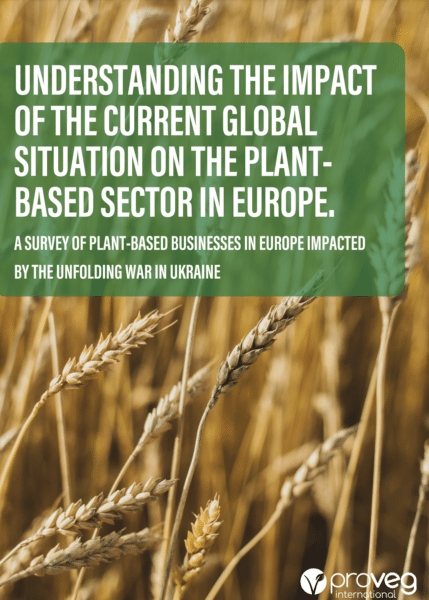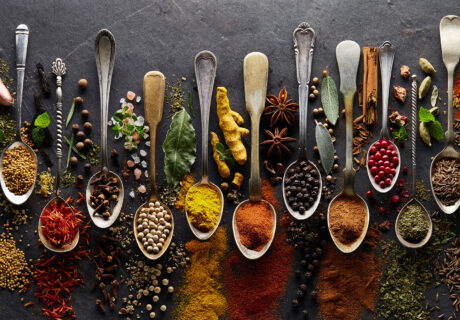Food awareness organization ProVeg International has been examining the impact of the ongoing war in Ukraine on ingredient supply in the plant-based sector.
In producing its new survey – Understanding the Impact of the Current Global Situation on the Plant—Based Sector in Europe – ProVeg International consulted 31 European companies from 14 countries between 1-20 April.
 “With the help of many leading plant-based businesses, we hope to gain a deeper understanding of the implications so that we – along with other NGOs and businesses – will be better informed when we formulate proposals directed at policymakers,” the intro states. “This survey does not reflect a desire to continue with business as usual in the face of the conflict, but rather acknowledges the impact of the war on the plant-based sector. Our concern with the resilience of the sector does not in any way mitigate our concern for those affected by the war.”
“With the help of many leading plant-based businesses, we hope to gain a deeper understanding of the implications so that we – along with other NGOs and businesses – will be better informed when we formulate proposals directed at policymakers,” the intro states. “This survey does not reflect a desire to continue with business as usual in the face of the conflict, but rather acknowledges the impact of the war on the plant-based sector. Our concern with the resilience of the sector does not in any way mitigate our concern for those affected by the war.”
The report highlights the price (and availability) of plant-based commodities, especially edible oils, as the greatest challenge. With Ukraine previously the biggest global export of sunflower oil, the companies confirmed increasing scarcity of this commonly used ingredient, now that many trade routes have been blocked by Russia. NPN was previously told by Thomas Kerfoot, commercial director of O&3, that supply chain disruption of sunflower seed oil – as common in beauty products as it is in plant-based food – is putting pressure onto other commodities ‘as people panic and look for alternatives’.
Another commonly reported change to the way plant-based business is conducted is the formation of closer partnerships between rival brands – a move made by many to ‘outsmart the challenges raised by the war’. ‘Closer internal collaboration between finance, production and logistics departments’ was also noted.
Our concern with the resilience of the sector does not in any way mitigate our concern for those affected by the war
Stephanie Jaczniakowska-McGirr, international head of food industry and retail, ProVeg, says ‘it’s good to see that companies are joining forces to overcome’ the challenges presented by the war – challenges which she acknowledges will ‘affect the food industry as a whole and not just plant-based companies’.
Key findings:
- 50% of respondents reported working more closely with rival brands, customers and internal staff
- 61% believe the crisis will ‘accelerate the green energy transition’
- 61% have noticed higher prices for raw ingredients
- 61% reported a shortage of raw ingredients
- 64% have experienced higher energy and transportation costs
- 64% have been affected by a lack of truck drivers and transport
- 59% forecast higher ingredient and energy prices will drive up product prices
- 69% said recruiting skilled workers for the sector will remain difficult.
- Participating businesses were also asked whether they anticipated needing government help within the next 3-36 months, to help them overcome the obstacles created by Russia’s invasion of Ukraine; 25% of companies said that they would require government support, while 29% said they might require support.
ProVeg recommendations:
- The EU should continue to implement the Farm to Fork strategy to support sustainable food production
- Europe-wide VAT discrimination towards plant-based alternatives to dairy should end
- Government support for plant-based companies should be provided where needed.





